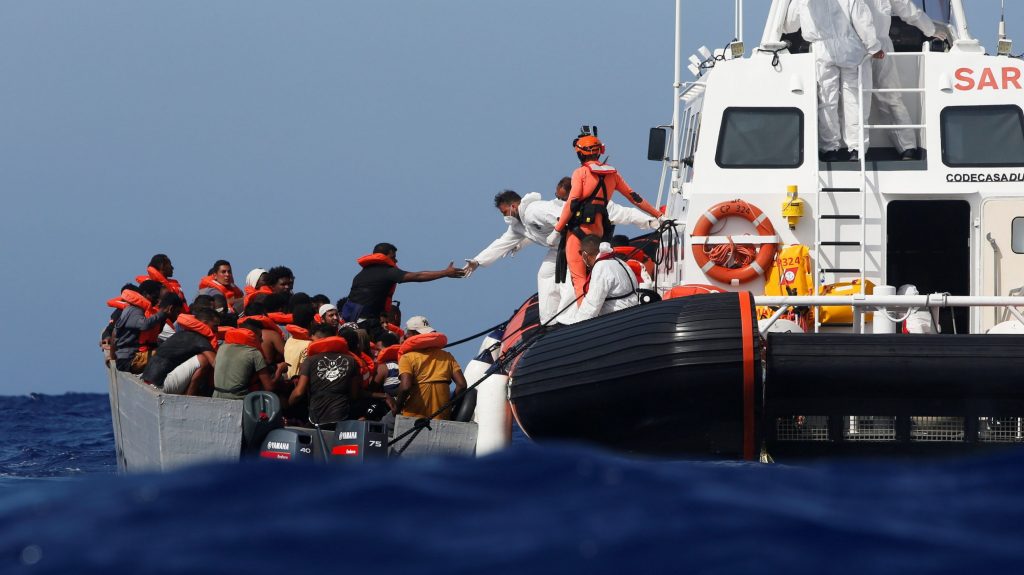Two rescue boats carrying 800 migrants saved from sinking or overcrowded vessels have been forced to roam the international waters of the Mediterranean for more than four days, waiting for permission to dock at a safe port.
After an already grueling and traumatic voyage from northern Africa on unsafe vessels organized by traffickers, the rescued migrants have been stuck on boats operated by nongovernmental humanitarian organizations, which reported food and patience were running out.
"With this heat, with the limited space on the boat deck, the situation can only get worse" as the days go by, said Luisa Albera, who was on board the Ocean Viking. The boat was carrying more than 550 people rescued from six different vessels trying to cross the Strait of Sicily.
"A ship can only be a transitional solution between a situation of danger and a safe place on land. To make people who escaped death at sea wait for days before they can be brought to land means putting their physical and mental health at risk," she told ANSA, the Italian wire service, Aug. 5.
Another rescue vessel, the Sea-Watch 3, operated by a German NGO, had more than 250 people on board from five separate rescue missions; it faced the same situation of receiving no response to requests for assistance in finding a port of safety and the prompt disembarkation of survivors. A handful of individuals on both vessels requiring urgent emergency medical attention had been evacuated by Italian and Maltese authorities, according to news reports Aug. 5.
SOS Méditerranée, the French humanitarian organization that operates the Ocean Viking, has been appealing to government maritime authorities since Aug. 1 "to assign a safe place without further delay and to European Union member states to reactivate a mechanism for landings and relocation that supports the coastal nations in coordinating the arrivals," according to ANSA.
In an interview with Vatican News Aug. 4, Archbishop Corrado Lorefice of Palermo said each time government officials refuse to help or fail to make urgent decisions regarding rescue operations, it demonstrates that denying assistance "is now an official part of the strategy our government leaders have embraced for handling migration."
This failure to act is allowing the continuation of a "harrowing genocide, which many still refuse to help with (preventing), turning their heads the other way," he said.
"First as human beings, but above all as Christians, we cannot but see the impossibility of remaining silent before this continuing evil, we cannot but remember how urgent it is to act against all that is happening around and in the heart of the Mediterranean, in the name of human rights, the Italian Constitution and the Gospel," the archbishop said.
Jesuit Father Camillo Ripamonti, president of Centro Astalli, a Jesuit Refugee Service center assisting refugees in Rome, said "saving those whose lives are at risk at sea, when alternate legal means to enter Europe are lacking, is a binding humanitarian duty."
The Italian Ministry of the Interior reported that almost 30,000 migrants entered the country by sea from Jan. 1 through the end of July.
That is a number that only triggers alarm bells and cries of an "invasion" on the part of people "who use fear and demagoguery as their only tools to use in political and media debates," he said.
National and local authorities and residents can work together "to end the slaughter of men, women and children seeking safety by welcoming migrants throughout the entire country" and spreading out where they are hosted, the priest said.
Meanwhile, a reception center on the tiny island of Lampedusa was at the breaking point with a string of new arrivals in recent weeks, holding 1,200 people when its maximum capacity was 250 people, according to Vatican News.
More than 9,000 people had been registered as arriving to the island by boat between July and early August, according to Italian government data.

